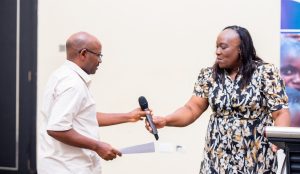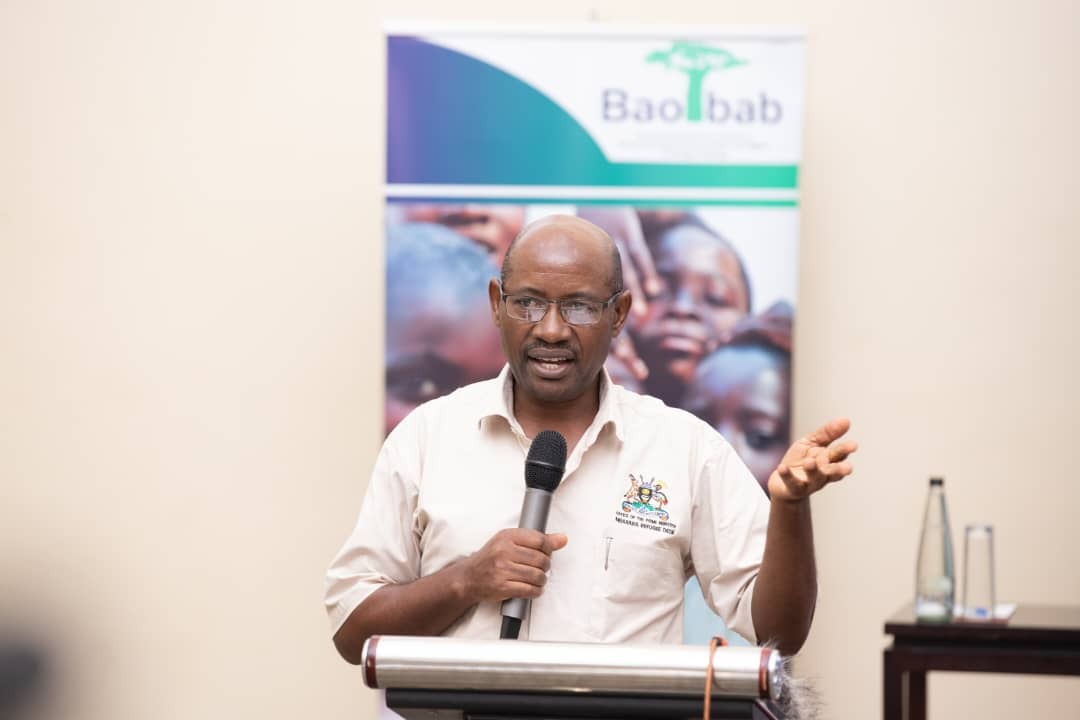By: Derrick Senyonga
KAMPALA
The Office of the Prime Minister (OPM) through the Department of Refugees has committed to use findings from a recent survey report to address violence against refugee children and youths in the country.
The first ever Violence Against Children Survey (VACS) study report taken exclusively in a humanitarian setting and launched yesterday at Mestil Hotel in Kampala reveals that children across refugee settlements in Uganda experience high levels of emotional, physical, and sexual violence, which have a major impact on their wellbeing, including their physical and mental health, and their schooling. In fact, nearly 50% of 18-24-year-old females and males experienced at least one of these forms of violence before age 18.

Dr Chi-Chi Undie, (right) Technical Director, Baobab,Population Council and Mr. Charles Bafaki, Principal Settlement Officer for Refugees at OPM
“In an era where refugee crises are ubiquitous and are considered as one of the most significant challenges of this century, we are humbled by this opportunity to work with the government of Uganda to meet their goals for the refugees that they host,” said Dr. Chi-Chi Undie, Research Director, Baobab RPC. “We hope that learnings and impacts from the first-ever HVACS reverberate across the wider region. Our work is foundational, and there is much more to be done. We hope that other programs will further the progress we have made.”
Conducted from March to April 2022, the Uganda HVACS is a representative household survey of 13- to 24-year-old females and males drawn from all 13 refugee settlements in the country.
“Some of the findings were alarming and the data-to-action workshop [held to discuss the findings and prioritize actions] gave us the time and space to interpret the results and prioritize actions around violence against children and youth in refugee settings,” said Lydia Wasula, Principal Probation & Welfare Officer for Uganda’s Ministry for Gender, Labour and Social Development (MGLSD).
“We know that half of the refugees around the world are children under 18. While children and adolescents are more affected by humanitarian crises, there is little data on their experiences of violence in these contexts,” said Begoña Fernandez, the Director of Data and Evidence at Together for Girls. “This first-ever Humanitarian Violence Against Children and Youth Survey is an important step in addressing an urgent data gap.”
In collaboration with the Uganda Ministry for Gender, Labour and Social Development (MGLSD) and the Office of the Prime Minister’s Department of Refugees, Baobab RPC is adapting a Population Council-tested intervention for implementation in refugee settings. In direct response to the 2022 Uganda HVACS findings, the intervention is expected to help promote disclosure by child survivors of sexual violence, normalize open discussions about sexual violence and care-seeking, while also shifting social norms that enable perpetration.
“I value our partnership with Baobab. The studies they are conducting are very important. They think outside the box,” said Senior Community Services Officer Darlson Kusasira from the Office of the Prime Minister. “We have learnt that there is a lot we need to do through the evidence from the HVACS. [Since] the D2A [Data-to-Action] workshop, some implementing partners have included interventions into this year’s annual plans, especially on violence against children and youth.”
END





